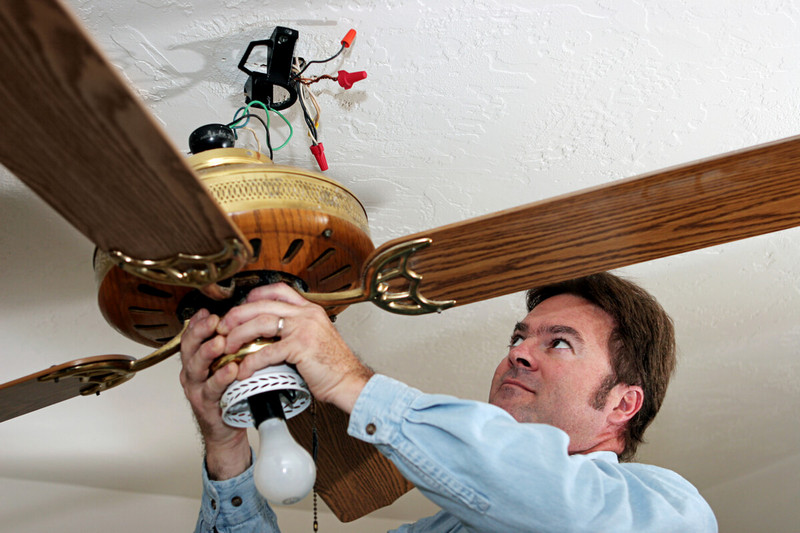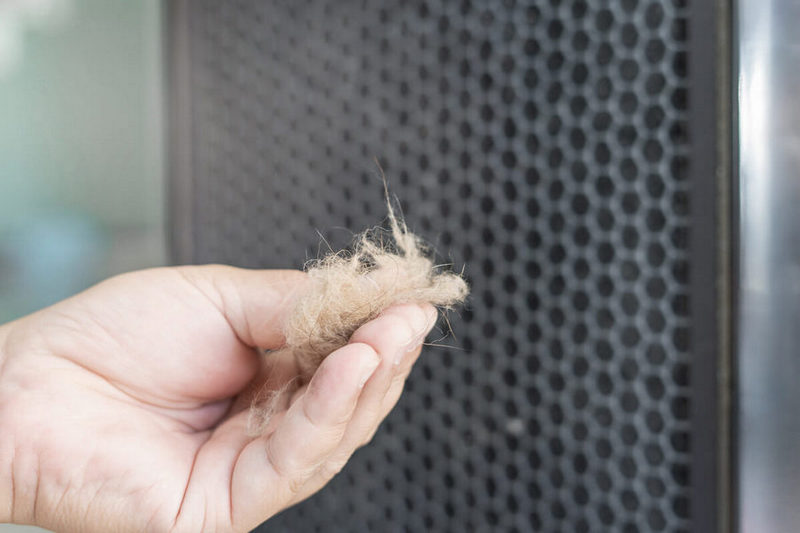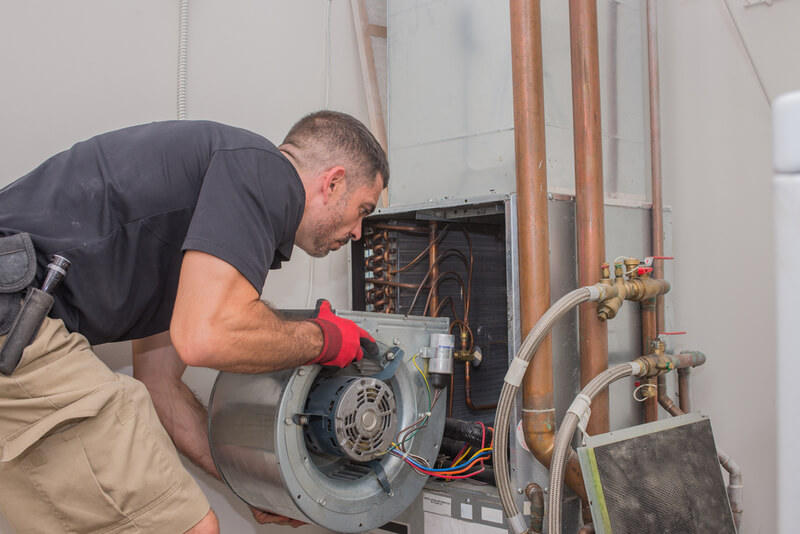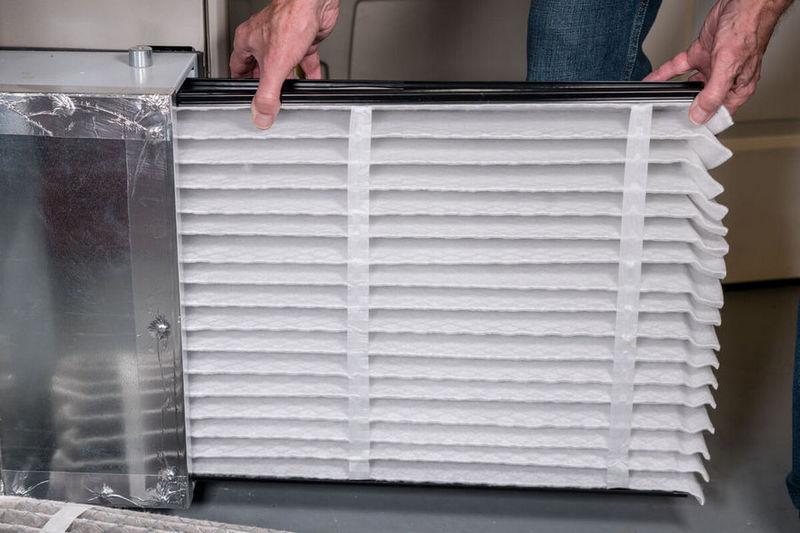Are you missing out on a good night’s sleep? Is it because of your ceiling fan making noise for no apparent reason? Guess what? You don’t necessarily have to spend big bucks and seek professional help to fix its noise problem.
Instead, a few essential inspections based on the type of noise you hear can quickly tell you the problem so you can solve it yourself. If you’re an amateur when it comes to the internal workings of a ceiling fan, this guide can help you diagnose the problem and fix it in no time.
Ceiling Fan Noises & How to Stop Them
Whether you’re trying to concentrate on work or trying to take a nap, ceiling fan noises can be a nuisance. This can get particularly frustrating when you can’t afford to turn your fan off during summers.
While some problems will require professional attention, there are some causes to the noise you can fix yourself. The trick is to concentrate on the type of sound you’re hearing and find the problem accordingly.
Here are some common types of ceiling fan noises and the problems which cause them. With every kind of noise, we’ve specified some issues you should check for and their corresponding fixes.
Read also: Does My Ceiling Fan Help or Hurt My Humidifier
Ceiling Fan Humming
Although insignificant, humming noises are the most common sounds made by malfunctioning ceiling fans. The noise can be pretty irritating, significantly when it’s amplified during the night.
However, the good news is that the sound is as easy to fix as it is negligible. Here are some common reasons why ceiling fans make humming noises with potential methods to fix them:
Dimmer Switch Replacement
Usually, fans that are integrated with a dimmer switch to control the speed tend to make a humming noise.
Although it is pretty common to use dimmer controls, they are not ideal speed controls for fans. To stop the humming noise, try to replace them with standard speed controls.
Fixing Your Capacitor
If nothing seems to fix the humming noise from your fan at this point, checking the capacitor is your last resort. First, remove the capacitor to check if it is working correctly and whether it needs cleaning or replacing.
It is good to consult the manufacturer or an expert to identify the problem with your capacitor if it seems to be the reason for the humming noise.
Adjusting Voltage Levels
Lastly, low voltage levels can also cause your fan to struggle during operation and create a strange humming noise. If the sound is inconsistent and intensifies at certain times of the day, you can be sure that it is due to voltage problems in your area.
If your voltage is below 105 volts, or there are multiple fans operating through the same circuit, fixing this problem will provide optimal power to your ceiling fan. Eventually, fixing this underlying problem can help you reduce the humming noise from your ceiling fan.
Buzzing and Squeaking Noises
Instead of the typical humming sound, if you find your ceiling fan making noise resembling an electrical buzzing sound, then something is off with the motor.
Your fan’s motor needs to be adequately lubricated with oil to ensure a flawless and sound-free rotation. Similarly, each screw around the motor needs to be secured to ensure none of them makes the annoying buzzing noise.
Start by taking your fan down and open the motor to check all these aspects. After that, turn your fan on again to see if oiling and screw-tightening fixed the electrical buzzing noise.
If your fan motor still buzzes and squeaks uncontrollably while rotating, it has probably started to disintegrate. Show it to your local electrician so he can determine whether it can be fixed or will need to be replaced.
Ceiling Fan Making Rattling Noise
While other ceiling fan noises can be irritating and disturbing, a rattling sound is downright scary. Have you ever been anxious about your fan falling right from the ceiling upon hearing a distinct rattling sound? You’re not alone.
However, most of the time, the source of this noise is relatively insignificant and can be fixed quickly to give you the peace of mind you need. Here are some common causes and fixes for this matter:
Loose Screws
You will not believe the amount of noise a single loose screw can make while your fan is rotating. Not only can these loose screws make it impossible to get some work done, but it is also pretty dangerous as well.
Check all the screws from your fan blades and motor to make sure they are fixed securely in place. Similarly, check the bearing in the motor in case your fan is making a rattling sound during motor operation.
Besides that, ensure the motor housing is fixed correctly in place. If it is not, it can be the cause of the strange rattling sound you hear.
Moreover, some ceiling fans have additional light fixtures that can come loose and produce a rattling sound. Make sure to secure the screws on these fixtures along with the other screws to reduce the noise.
Read also: How to Fix Ceiling Fan Lights That Don’t Work
Balance Your Blades
Loose ceiling fan blades are perhaps the most dangerous cause for a rattling sound during operation. To confirm this problem, you can get a balancing kit to check the alignment on all three blades and balance them out if there’s a problem.
All you have to do is clip the unique instrument from the kit on all three blades and turn the fan on. Then, if the rattling stops, you know the problem lies in your blade alignment. You can reduce the wobble yourself or get professional help to avoid any further inconvenience.
Grinding
If a grinding sound comes from your ceiling fan, adjust the down rod inside your mounting bracket. The down rod is mainly a ball-shaped part that fits inside the mounting bracket.
If it is not fixed correctly according to the groove, your fan will make a grinding sound during operation.
Simply remove the top part of your fan to expose the mounting bracket. Here, you can check whether the down rod is sitting properly inside the bracket and its pin is attached properly.
If it seems to be sitting loose in its pin, you can use basic tools to tighten it or get help from a professional advisor.
Ceiling Fan Making Clicking Noise
Clicking noises from a ceiling fan are usually a sign of an underlying problem with its blades. Either the blades need cleaning, tightening, or balancing. In case you hear a clicking sound from your ceiling fan making noise, check all three of these aspects and try to fix them.
First of all, inspect all three blades from all sides and clean them thoroughly. Even dirt has weight which causes a slight disbalance in the blade alignment, leading to noisy operation.
Wipe the dust and debris off and finish the cleaning process with a damp cloth.
After you’re done cleaning but the clicking noise still persists, tighten the different parts where the blades can come loose. These include the screws and brackets holding the blades in their place.
Once your blades are secured properly in place and are rotating in a balanced manner, you won’t hear the clicking noise anymore.
Rubbing and Scraping
Rubbing and scraping noises occur when one part is dragging against the other in a ceiling fan during operation. Remember, a fan is constantly rotating, which makes it easy for a part to deviate from its place.
Start by checking the motor cover and the fan shroud to make sure none of the blades are rubbing against the cover.
Besides that, reposition the cover and test whether the fan is wobbling during rotation. If it is, the wobbling motion is mainly causing the parts of your fan to run in misalignment, resulting in the rubbing and scraping noise.
How to Know If You Need Professional Help to Fix Your Ceiling Fan?
While most problems resulting in a ceiling fan making noise can be fixed at home, some require professional assistance as well. The first thing you should do is to try and identify the problem yourself.
Now, if you can’t seem to point out the problem or fix it with any tricks we have covered, it is probably time to get some help. Similarly, even if you do identify the problem, but it is too technical for you to handle it by yourself, the best option is not to dive in by yourself.
If your fan needs technical intervention to fix the noise problem, your tinkering may lead to further mishaps and may even prove to be dangerous for you. In other words, if you’re not sure whether you can take up the task yourself, call a licensed electrician to help you out, or take your fan to an electrical workshop.
Conclusion
That concludes this guide about the causes and fixes for a ceiling fan making noise. Whether your fan is making a rattling, humming, rubbing, or clicking noise, you can easily find out the problem by checking its parts thoroughly.
Remember to check the screws, fixtures, blades, motor cover, and wire connections to eliminate any loose ends. Similarly, check other aspects like voltage, dirt accumulation, and the remote control receptors.
If nothing seems to work or you can’t fix the problem yourself, get a professional electrician to help you out. Sometimes, getting a new fan might be more cost-effective than fixing your old one. Keep that in mind before you part with your money for fan repairs.







